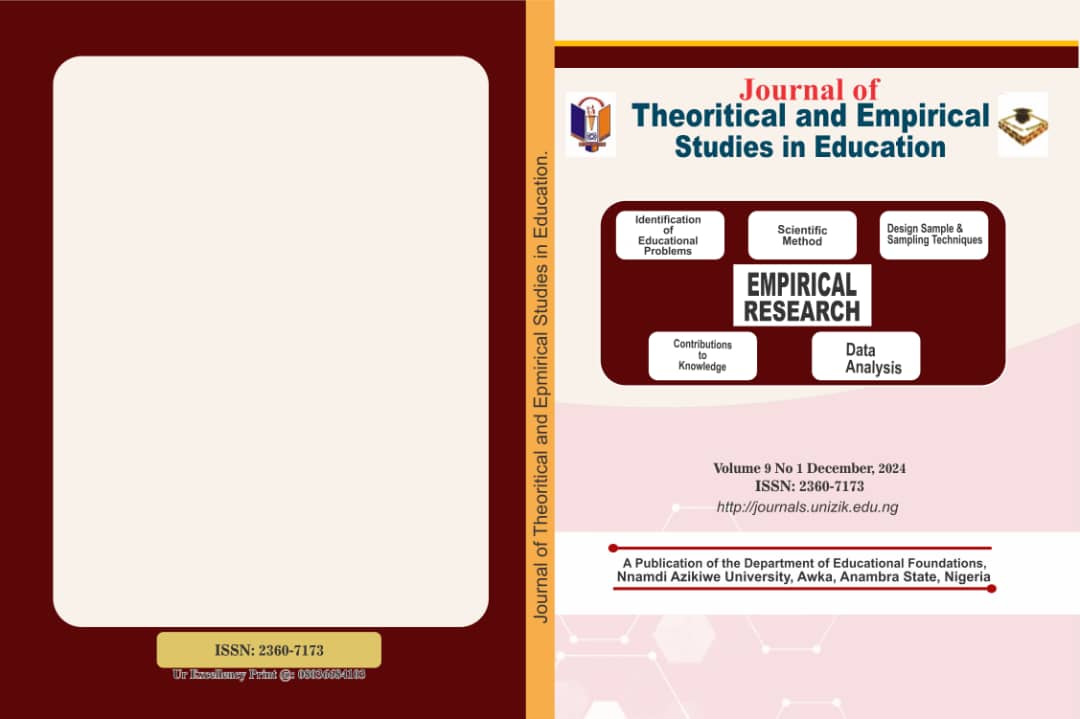TEACHERS’ DISPOSITION TOWARDS THE USE OF ALTERNATIVE ASSESSMENT IN ASSESSING SCIENCE STUDENTS IN SENIOR SECONDARY SCHOOLS IN LAGOS STATE, NIGERIA
Keywords:
Assessment; alternative assessment; disposition; science teachers and science studentsAbstract
The study examined teachers’ disposition towards utilization of alternative assessment in assessing science students in senior secondary schools, determined the effect of utilization of alternative assessment and investigated
the influence of teachers’ sex and cadre on their disposition towards utilization of alternative assessment in assessing science students in senior secondary schools. Two research questions and three hypotheses were raised for the study. The research design adopted was survey research design. The population comprised of 533 science teachers in public senior secondary
schools in Ikorodu Local Government Area, Lagos State, Nigeria. A sample of 230 science teachers were selected by stratified random sampling technique. An instrument tittled “Teachers Response to Utilization of Alternative Assessment” (TRUAA) was used to collect the data. The questionnaire elicited demographic information of participants as well as their disposition towards utilization of alternative assessment. The reliability coefficient of the questionnaire was determined using Cronbach Alpha and
the coefficient was 0.82. Data collected were analysed using mean, standard deviation and Chi- Square. Results showed that most teachers were positively disposed to utilization of alternative assessment (mean value= 3.05). The results further showed that teachers’ sex (X2=.846, p>0.05), and cadre (X2=.058, p>0.05) had no significant influence on their disposition towards utilization of alternative assessment. Based on the findings of the study, it was recommended among others that, the Ministry of Education
needs to understand that raising academic standards require effective teaching techniques, therefore, all secondary school teachers must be mandated to incorporate alternative assessments in their evaluation practices and frequently utilize same for science students




